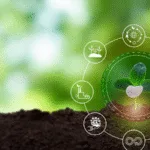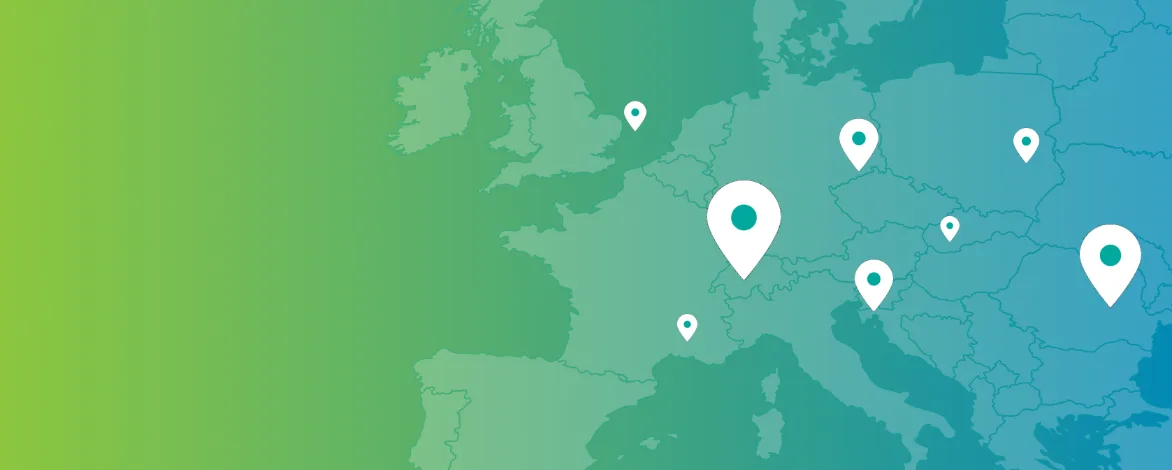Chemical industry snapshot
The chemical industry represents 6.5% of the Greek industry but provides 5% of the country’s exports. 67,5% of the chemicals produced are exported. The chemical exports had a significant increase 60% compared to 2020.
Its plants are largely divided between the North Greece region around Thessalonica, responsible for 20% of output and the Central and South Greece region, where the prefectures of Voiotia and Attica account for almost 50% of total output. Nationwide, the chemical industry employs almost 13000 people. 1 job in the chemical industry is linked to 5,7 jobs of the whole economy. Almost all chemical enterprises in Greece can be classified as small and medium-sized enterprises, with only 0.6 % of the total number of enterprises employing more than 250 people. Of all the businesses in the sector, 186 (19% of the total) employ more than 10 persons, accounting for 94% of the sector’s turnover, while 62 (6% of the total) employ more than 50 persons, accounting for 76% of total turnover Most of them are engaged into activities related to the production of consumer (47 %) and specialty chemicals (34 %), such as detergents, cosmetics, construction and insulation materials, paints, and biofuels, while few micro-enterprises are active in nanomaterials. The very few largest companies are involved in the production of basic chemicals, mainly petrochemicals, inorganic fertilisers and polymers
The Greek as the EU chemical industry has significant fixed assets, but long-term planning and high capital investments are needed to ensure their sustainability. In particular, the transition to a climate-neutral, safer, zero pollution and circular chemical industry requires significant investments in research and innovation, as well as high (capital and operation) costs to replace fixed assets, modify production processes, and purchase energy and raw materials from alternative sources
How are we doing?
Sustainable competitiveness
The chemical industry in Greece, as in the EU, faces inter alia strong international competition, increased energy and raw materials costs, as well as unfair competition from imports from third countries of certain products that do not meet the safety and sustainability standards of products produced within the EU. Combined with the small size of enterprises and the low level of investment and productivity, these factors aggravate the competitiveness of the Greek chemical industry. The competitiveness of the chemical industry in Greece could in principle be strengthened by the implementation of the actions of the National Strategy for Industry, which promote the growth of SMEs and enhance their internationalisation, through incentives and support for expansion into new markets.
The health and energy crisis highlighted the strengths of the Greek chemical industry, which, due to its structure, had less losses than the chemical industry in the EU. Energy policy responded with major initiatives that strengthened energy security and shielded the country against future risks, without underestimating the impact of increased energy and raw materials costs.
There is a clear targeting and actions of the country’s energy policy to enhance energy security, with main priorities: a) enhancing the diversification of energy sources and energy import routes, b) reducing energy dependency and highlighting the country as a regional energy hub, c) promoting flexibility systems, storage and demand response systems and ensuring the country’s capacity adequacy, d) preparedness of the country and stakeholders to deal with the restriction or interruption of energy supply and e) increasing the resilience of critical energy infrastructure. These priorities are particularly positive for the sustainable competitiveness of the Greek industry, including the chemical industry, in the coming years, which requires the reduction of existing ones and the avoidance of new unsustainable dependencies of the supply chain in energy resources and raw materials.
Our contribution to a competitive Europe
- Ambitious 2030 and further targets in line with the EU Green Deal targets, Untapped oil reserves are estimated to include 22 billion barrels in the Ionian Sea off the coast of Western Greece and more than 4 billion barrels in the Northern Aegean.
- Greece has a growing role in supplying natural gas to Europe. The Trans Adriatic Pipeline (TAP) from Greece, via Albania and the Adriatic Sea to Southern Italy, is operative since 2020. It allows gas to flow from the Caspian region to European markets.
- IGB pipeline is going to connect to TAP, it is the beginning of a Vertical Gas Corridor which facilitates the connection of the Greek, Bulgarian, Romanian and Hungarian markets. It is expected to be ready by the end of 2021.
- FSRU Alexandroupolis: the floating terminal in area of Alexandroupolis in Northern Greece, in connection with IGB, is going to secure additional natural gas supply in the South East and Central Europe.
- In 2023 the production of clean electricity in Greece, as 57% of the energy mix was covered by Renewable Energy Sources (air – sun) and by hydroelectric units, exceeding 25 TWh. In 2022 the corresponding percentage was 50.12%.














